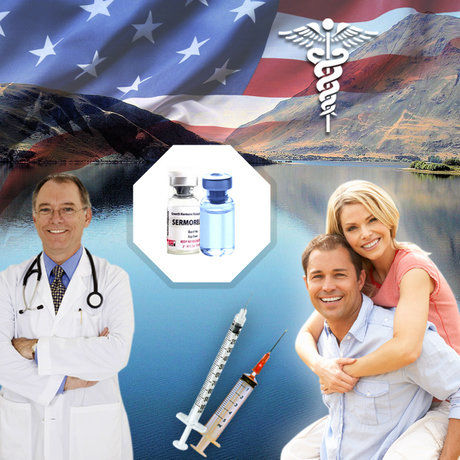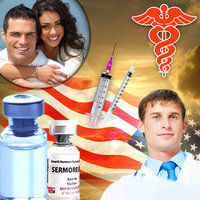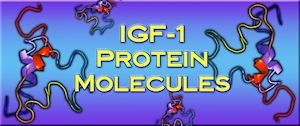Introduction to Primary Hypogonadism
Primary hypogonadism, a condition characterized by the inadequate production of testosterone due to testicular failure, presents unique challenges for American males. This hormonal imbalance can lead to a myriad of health issues, including decreased muscle mass, increased body fat, and diminished bone density. Addressing these concerns requires a multifaceted approach, where diet plays a pivotal role.
The Crucial Role of Dietitians
Dietitians are instrumental in crafting personalized nutrition plans that cater to the specific needs of men with primary hypogonadism. Their expertise in nutritional science allows them to design diets that not only address the symptoms of the condition but also promote overall health and well-being. By understanding the metabolic changes associated with hypogonadism, dietitians can tailor dietary interventions to optimize health outcomes.
Nutritional Strategies for Enhancing Testosterone Levels
One of the primary goals in managing primary hypogonadism is to support or enhance testosterone levels through diet. Dietitians may recommend foods rich in zinc and vitamin D, as these nutrients have been linked to testosterone production. For instance, incorporating lean meats, seafood, and fortified cereals can help meet these nutritional needs. Additionally, a diet high in healthy fats from sources like avocados, nuts, and olive oil may support hormone synthesis.
Promoting Muscle Health and Bone Density
Men with primary hypogonadism often experience muscle wasting and reduced bone density. Dietitians can address these issues by recommending a diet rich in protein and calcium. High-quality proteins from sources such as lean meats, fish, and legumes can aid in muscle repair and growth. Similarly, dairy products and leafy greens can provide the necessary calcium to support bone health. Dietitians may also suggest supplements if dietary intake alone is insufficient.
Managing Weight and Body Composition
Obesity is a common concern among men with primary hypogonadism, as low testosterone levels can lead to increased fat accumulation. Dietitians play a crucial role in developing weight management strategies that focus on sustainable lifestyle changes. A balanced diet that includes a variety of fruits, vegetables, whole grains, and lean proteins can help in maintaining a healthy weight. Moreover, dietitians can provide guidance on portion control and meal planning to prevent overeating.
Addressing Cardiovascular Health
Primary hypogonadism is also associated with an increased risk of cardiovascular diseases. Dietitians can help mitigate this risk by promoting a heart-healthy diet. This includes reducing intake of saturated fats and trans fats, while increasing consumption of omega-3 fatty acids found in fish like salmon and mackerel. Additionally, a diet rich in fiber from whole grains and vegetables can help manage cholesterol levels, further supporting cardiovascular health.
Collaborative Care and Ongoing Support
The management of primary hypogonadism requires a collaborative approach, involving not only dietitians but also endocrinologists and other healthcare professionals. Dietitians can work closely with these specialists to monitor the patient's progress and adjust nutritional plans as needed. Regular follow-ups and ongoing support are essential to ensure that dietary interventions remain effective and aligned with the patient's evolving health needs.
Conclusion: Empowering American Males Through Nutrition
In conclusion, dietitians play a vital role in the management of primary hypogonadism among American males. Through personalized nutrition plans, they can address the unique challenges posed by this condition, from enhancing testosterone levels to promoting muscle and bone health. By fostering a holistic approach to care, dietitians empower men with primary hypogonadism to lead healthier, more fulfilling lives.
Contact Us For A Fast And Professional Response

- Primary Hypogonadism in American Males: Overcoming Stigma and Enhancing Treatment [Last Updated On: March 15th, 2025] [Originally Added On: March 15th, 2025]
- Primary Hypogonadism in Aging Men: Symptoms, Diagnosis, and Treatment Options [Last Updated On: March 17th, 2025] [Originally Added On: March 17th, 2025]
- Managing Primary Hypogonadism and Diabetes: Challenges and Strategies for American Men [Last Updated On: March 18th, 2025] [Originally Added On: March 18th, 2025]
- Primary Hypogonadism and Obesity Link: Impact and Management in American Men [Last Updated On: March 18th, 2025] [Originally Added On: March 18th, 2025]
- Primary Hypogonadism: Symptoms, Diagnosis, and Advocacy for American Men's Health [Last Updated On: March 18th, 2025] [Originally Added On: March 18th, 2025]
- Managing Primary Hypogonadism: Nutritional Strategies to Boost Testosterone in American Males [Last Updated On: March 19th, 2025] [Originally Added On: March 19th, 2025]
- Exercise Strategies for Managing Primary Hypogonadism in American Males [Last Updated On: March 19th, 2025] [Originally Added On: March 19th, 2025]
- Primary Hypogonadism: Impact, Diagnosis, and Management Strategies for American Men [Last Updated On: March 19th, 2025] [Originally Added On: March 19th, 2025]
- Primary Hypogonadism: Support Networks Crucial for Emotional and Treatment Guidance [Last Updated On: March 19th, 2025] [Originally Added On: March 19th, 2025]
- Innovative Therapies Transforming Primary Hypogonadism Treatment in American Males [Last Updated On: March 20th, 2025] [Originally Added On: March 20th, 2025]
- Primary Hypogonadism and Sleep: Impacts and Management Strategies for American Men [Last Updated On: March 20th, 2025] [Originally Added On: March 20th, 2025]
- Primary Hypogonadism in American Males: Current Treatments and Future Innovations [Last Updated On: March 21st, 2025] [Originally Added On: March 21st, 2025]
- Managing Primary Hypogonadism: Importance of Regular Check-ups for American Males [Last Updated On: March 21st, 2025] [Originally Added On: March 21st, 2025]
- Navigating the Emotional Journey of Primary Hypogonadism in American Males [Last Updated On: March 22nd, 2025] [Originally Added On: March 22nd, 2025]
- Navigating Primary Hypogonadism: Diagnosis, Treatment, and Healthcare Advocacy in the U.S. [Last Updated On: March 22nd, 2025] [Originally Added On: March 22nd, 2025]
- Primary Hypogonadism: Impact on Work and Strategies for Productivity in American Men [Last Updated On: March 22nd, 2025] [Originally Added On: March 22nd, 2025]
- American Males' Resilience and Strength with Primary Hypogonadism: Personal Stories and Support [Last Updated On: March 23rd, 2025] [Originally Added On: March 23rd, 2025]
- Primary Hypogonadism: Causes, Symptoms, and Treatment for American Men's Health [Last Updated On: March 23rd, 2025] [Originally Added On: March 23rd, 2025]
- Primary Hypogonadism's Impact on Muscle Mass in American Males: Mechanisms and Interventions [Last Updated On: March 23rd, 2025] [Originally Added On: March 23rd, 2025]
- Primary Hypogonadism: Understanding, Diagnosing, and Treating Testicular Failure in American Men [Last Updated On: March 23rd, 2025] [Originally Added On: March 23rd, 2025]
- Primary Hypogonadism: Symptoms, Diagnosis, and Management in American Men [Last Updated On: March 23rd, 2025] [Originally Added On: March 23rd, 2025]
- Primary Hypogonadism in American Men: Causes, Diagnosis, and Holistic Management Strategies [Last Updated On: March 24th, 2025] [Originally Added On: March 24th, 2025]
- Primary Hypogonadism: Impact on American Men's Social Life and Well-being [Last Updated On: March 24th, 2025] [Originally Added On: March 24th, 2025]
- Primary Hypogonadism in American Males: Causes, Impacts, and Management Strategies [Last Updated On: March 24th, 2025] [Originally Added On: March 24th, 2025]
- Primary Hypogonadism: Causes, Symptoms, and Treatment Options for American Men [Last Updated On: March 24th, 2025] [Originally Added On: March 24th, 2025]
- Primary Hypogonadism: Diagnosis, Impact, and Management in American Men [Last Updated On: March 24th, 2025] [Originally Added On: March 24th, 2025]
- Managing Primary Hypogonadism: Testosterone Therapy and Lifestyle Strategies for American Men [Last Updated On: March 24th, 2025] [Originally Added On: March 24th, 2025]
- Managing Primary Hypogonadism: Education, Treatment, and Support for American Males [Last Updated On: March 24th, 2025] [Originally Added On: March 24th, 2025]
- Primary Hypogonadism: Impacts on Body Image and Holistic Management Strategies [Last Updated On: March 24th, 2025] [Originally Added On: March 24th, 2025]
- Primary Hypogonadism in American Males: The Vital Role of Family Support [Last Updated On: March 25th, 2025] [Originally Added On: March 25th, 2025]
- Community Support Enhances Life for Men with Primary Hypogonadism [Last Updated On: March 25th, 2025] [Originally Added On: March 25th, 2025]
- Primary Hypogonadism's Emotional Impact on American Males: Diagnosis, Treatment, and Support [Last Updated On: March 25th, 2025] [Originally Added On: March 25th, 2025]
- Genetic Testing for Primary Hypogonadism: Diagnosis and Management in American Males [Last Updated On: March 25th, 2025] [Originally Added On: March 25th, 2025]
- Primary Hypogonadism's Impact on Physical Activity in American Males [Last Updated On: March 25th, 2025] [Originally Added On: March 25th, 2025]
- Economic Impact of Primary Hypogonadism on American Men: Costs and Management Strategies [Last Updated On: March 26th, 2025] [Originally Added On: March 26th, 2025]
- Primary Hypogonadism: Advocacy and Research Needs for American Men's Health [Last Updated On: March 26th, 2025] [Originally Added On: March 26th, 2025]
- Primary Hypogonadism's Impact on Self-Esteem in American Males: Awareness and Treatment [Last Updated On: March 26th, 2025] [Originally Added On: March 26th, 2025]
- Nutritionists' Vital Role in Managing Primary Hypogonadism in American Males [Last Updated On: March 26th, 2025] [Originally Added On: March 26th, 2025]
- Primary Hypogonadism: Symptoms, Early Intervention, and Treatment Options for American Men [Last Updated On: March 26th, 2025] [Originally Added On: March 26th, 2025]
- Primary Hypogonadism in American Men: The Vital Role of Peer Support [Last Updated On: March 26th, 2025] [Originally Added On: March 26th, 2025]
- Primary Hypogonadism: Symptoms, Diagnosis, and Management in the U.S. Healthcare System [Last Updated On: March 26th, 2025] [Originally Added On: March 26th, 2025]
- Primary Hypogonadism: Diagnosis, Specialists, and Treatment for American Men [Last Updated On: March 27th, 2025] [Originally Added On: March 27th, 2025]
- Diagnosing Primary Hypogonadism in American Males: Challenges and Solutions [Last Updated On: March 27th, 2025] [Originally Added On: March 27th, 2025]
- Primary Hypogonadism: Impacts on American Males' Careers and Strategies for Resilience [Last Updated On: March 27th, 2025] [Originally Added On: March 27th, 2025]
- Primary Hypogonadism in American Males: Symptoms, Effects, and Management Strategies [Last Updated On: March 27th, 2025] [Originally Added On: March 27th, 2025]
- Managing Primary Hypogonadism in American Men: Diagnosis, Treatment, and Lifestyle Strategies [Last Updated On: March 27th, 2025] [Originally Added On: March 27th, 2025]
- Primary Hypogonadism: Understanding Treatments and Managing Side Effects in American Males [Last Updated On: March 27th, 2025] [Originally Added On: March 27th, 2025]
- Primary Hypogonadism: Impact on Mental Health and Role of Professionals [Last Updated On: March 27th, 2025] [Originally Added On: March 27th, 2025]
- Primary Hypogonadism in American Men: Prevalence, Management, and Future Research [Last Updated On: March 28th, 2025] [Originally Added On: March 28th, 2025]
- Primary Hypogonadism: Emotional Support Strategies for American Men [Last Updated On: March 29th, 2025] [Originally Added On: March 29th, 2025]
- Primary Hypogonadism: Challenges and Solutions in Male Family Planning [Last Updated On: March 30th, 2025] [Originally Added On: March 30th, 2025]
- Exercise Physiologists' Role in Managing Primary Hypogonadism in American Males [Last Updated On: March 30th, 2025] [Originally Added On: March 30th, 2025]
- Managing Primary Hypogonadism: Lifestyle Strategies for American Men's Health [Last Updated On: April 2nd, 2025] [Originally Added On: April 2nd, 2025]
- Managing Primary Hypogonadism: Strategies for Stress and Anxiety in American Men [Last Updated On: April 2nd, 2025] [Originally Added On: April 2nd, 2025]
- Endocrinologists' Vital Role in Managing Primary Hypogonadism in American Males [Last Updated On: April 3rd, 2025] [Originally Added On: April 3rd, 2025]
- Overcoming Psychological Barriers to Primary Hypogonadism Treatment in American Males [Last Updated On: April 3rd, 2025] [Originally Added On: April 3rd, 2025]
- Managing Primary Hypogonadism: Financial Assistance Options for American Men [Last Updated On: April 6th, 2025] [Originally Added On: April 6th, 2025]
- Primary Hypogonadism: Impacts on Social Connections and Strategies for Support [Last Updated On: April 8th, 2025] [Originally Added On: April 8th, 2025]
- Managing Primary Hypogonadism: Education's Role in American Males' Health [Last Updated On: April 9th, 2025] [Originally Added On: April 9th, 2025]
- Support Groups: Vital for American Males with Primary Hypogonadism [Last Updated On: April 9th, 2025] [Originally Added On: April 9th, 2025]
- Managing Primary Hypogonadism in American Men: A Multidisciplinary Approach [Last Updated On: April 9th, 2025] [Originally Added On: April 9th, 2025]
- Managing Primary Hypogonadism: Symptoms, Diagnosis, and Treatment for American Men [Last Updated On: April 9th, 2025] [Originally Added On: April 9th, 2025]
- Technology Revolutionizes Primary Hypogonadism Management in American Men [Last Updated On: April 10th, 2025] [Originally Added On: April 10th, 2025]
- Primary Hypogonadism: Diagnosis, Treatment, and Lifestyle Management for American Men [Last Updated On: April 11th, 2025] [Originally Added On: April 11th, 2025]
- Primary Hypogonadism: Understanding, Managing, and Thriving for American Men [Last Updated On: April 12th, 2025] [Originally Added On: April 12th, 2025]
- Managing Primary Hypogonadism: Challenges and Strategies for American Males [Last Updated On: April 12th, 2025] [Originally Added On: April 12th, 2025]
- Mental Health Apps: A Vital Support for American Males with Primary Hypogonadism [Last Updated On: April 13th, 2025] [Originally Added On: April 13th, 2025]
- Primary Hypogonadism: Symptoms, Causes, and Management Strategies for American Males [Last Updated On: April 13th, 2025] [Originally Added On: April 13th, 2025]
- Primary Hypogonadism: Workplace Challenges and Advocacy Strategies for American Men [Last Updated On: April 15th, 2025] [Originally Added On: April 15th, 2025]
- Primary Hypogonadism's Impact on American Men's Hobbies and Leisure Activities [Last Updated On: April 15th, 2025] [Originally Added On: April 15th, 2025]
- Managing Primary Hypogonadism: The Crucial Role of Regular Follow-Ups in Men's Health [Last Updated On: April 17th, 2025] [Originally Added On: April 17th, 2025]
- Managing Primary Hypogonadism: Building Your Comprehensive Healthcare Team [Last Updated On: April 18th, 2025] [Originally Added On: April 18th, 2025]

















